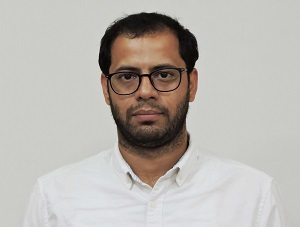On 08 May 2023, the Vivekananda International Foundation (VIF) organised a talk by Prof Sreeradha Datta under the Neighbourhood Studies Centre on "India-Bangladesh Relations in the Face of Upcoming Elections". At the beginning of the talk, Lt General R K Sawhney welcomed all the participants and handed over the proceedings to Amb. Pankaj Saran, who shared some key insights on the developments in Bangladesh and welcomed Prof Sreeradha Datta for the presentation.
Bangladesh and India have long-standing, close bilateral relations and a complicated shared past. Both nations have accomplished a lot since Bangladesh gained its independence, but nothing should be taken for granted, according to Prof. Sreeradha Data. In terms of India, Delhi has made significant progress in the east, especially since Sheikh Hasena assumed leadership. She did a great job of addressing the security issues. However, there are perceptions and misperceptions that are going to shape bilateral relations in the near future. We need to think and step outside of Delhi and look at the recent developments between the two countries. In this case, the major area of discussion is infrastructural development across borders which is also a part of our security relationship.
Many ongoing projects under the Indian Line of Credit can strengthen relations. It can be observed from the thermal power project under Bangladesh India Friendship Power Company (BIFPC). Besides, both countries have done many treaties and agreements including the land border agreement. Such developments are the result of long-term conversations and dialogues between statesmen across borders. As far as their (in) security is concerned, people across borders have different opinions. In this case, the most important concern for India is migration. Whereas, the major concern for Bangladesh is water, which is also a major cause for distrust between states and people across borders. Nevertheless, India has issued many types of visas for different purposes to facilitate cross-border movement. It can be fruitful for strengthening inter-state relations as well as people-to-people connections across borders.
Bangladesh has received around 7.8 billion Line of Credit (LOC) from India and also from other countries for developmental projects. These credits are being used to make railways, roads, bridges and many other projects. However, Awami League (AL) and the associated corporates are being accused of corruption. For instance, look at the cost of Padma Bridge TK 30,193 crores. Nevertheless, it is likely that Sheikh Hasina will come to power through free and fair elections.
The confusion among the BNP leaders is just another factor that would help Hasina's party. Despite widespread confusion and mixed feelings towards political parties, the BNP's struggles speak volumes on their own. Additionally, Sheikh Hasina's AL has expanded all of its neighbourly friendliness initiatives. Although, India and Bangladesh are unable to discuss some crucial issues, like migration and the labour market among others as well. There are also other problems, including the Islamic aspect and the groups that encourage fanaticism. Without their backing, no political party will succeed. Although Hasina has tight control over them, it is unclear how this will affect the upcoming elections and subsequently democracy.
There are two extreme cases: Bangladesh before 1971 and Bangladesh after 1971. The popular yet diverse sentiments of the nation's citizens will determine which one will dominate the discourse in the coming election. Additionally, it would be difficult to comply with the BNP's demand for free and fair elections after establishing a caretaker administration due to some uncertainties; hence, unlike the BNP in 2003, AL will not undertake it. On the other hand, countries like the US and the UK are also exerting pressure for free and fair elections. As far as India is concerned, Bangladesh requires a relationship for support, and it may be seen through the eyes of the young, the people-to-people connection and fostering relationships at the grassroots level. However, the interests of the states will determine the relationship. There are many concerns about cross-border security, but the question is, who will guarantee security while deaths are still occurring across borders? It must be settled by negotiation and diplomacy. Nevertheless, we must continue to voice our worries and do so in a respectful manner.






Post new comment